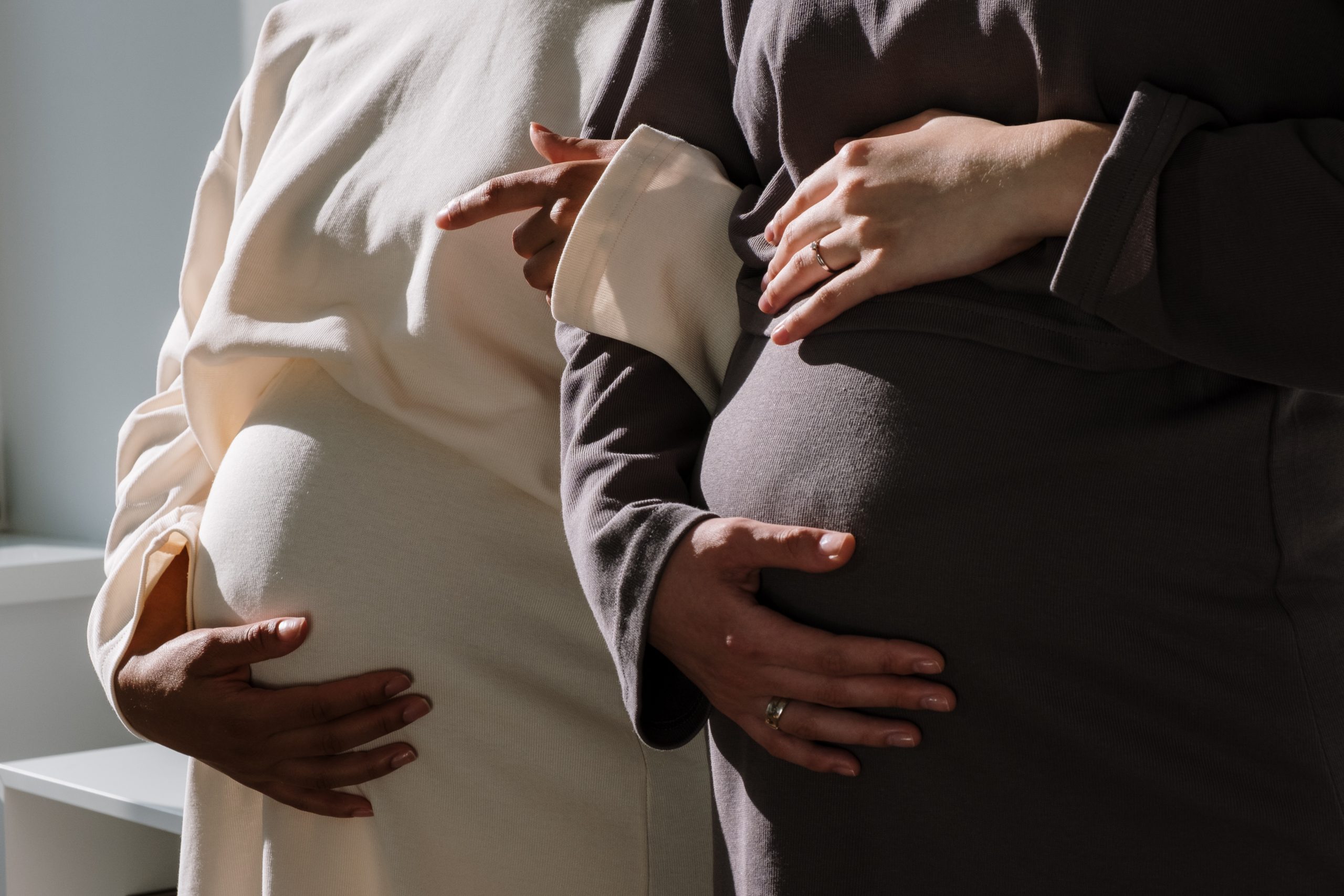You have one question at the forefront of your mind: Am I pregnant?
Pregnancy tests are the only method of knowing for sure. However, if it is too early to perform a test, you might be looking for early signs – or perhaps you believe you are already having some symptoms of early pregnancy.
First Pregnancy Symptoms
What is the most common indication of early pregnancy? If you miss a period.
A menstrual cycle is the body’s way of getting ready for a potential pregnancy each month. A part of this is the thickening of the uterine lining, where the fertilized egg implants to start a pregnancy.
Other Signs and Symptoms of Early Pregnancy
Every woman – and every pregnancy – differs. Therefore, if you’re pregnant, you will probably have a unique mixture of common, uncommon, and occasionally overlapping symptoms. Plus, they might show up later or earlier than expected. Below is a list of 13 potential early pregnancy symptoms:
1. Light bleeding or spotting
Many people are shocked to learn that light bleeding or spotting may be an early indication of pregnancy; however, around 1/3 of females experience it. It’s oftentimes referred to as implantation bleeding because physicians think it happens as a fertilized egg implants itself into the lining of the uterus. It’s different from bleeding that might happen from something such as a miscarriage – which is typically heavier.
2. Cramping or lower abdominal pain
While lower abdominal pain or cramps may be a sign of an upcoming period, they also can be an indication of an egg attachment.
What do these types of cramps feel like?
Such cramps may happen without or with bleeding or spotting and might feel different from menstrual cramps. For instance, you may feel mild to moderate pulling, tingling, or prickling that occurs sporadically over a couple of days.
However, period cramps may frequently feel like a dull or throbbing ache and usually start one or two days before your cycle.
3. Increase in BBT (basal body temperature)
If you have been keeping track of your BBT (basal body temperature) to raise the odds of getting pregnant, you likely know that your basal body temperature shoots up a bit directly after ovulation. If you are pregnant, your temperature might stay elevated instead of diving back down.
4. Cervical mucus changes
If you have already been assessing your cervical mucus to discover when you are most fertile, here is a reason you should continue: Within the first couple of weeks of pregnancy, the quantity of cervical discharge might increase and become whiter and stickier.
5. Breast tingling, swelling, or tenderness
When you are pregnant, the body experiences major hormone changes – especially increases in progesterone and estrogen – to support the growing baby. That hormone change may contribute to multiple symptoms, which include tenderness of the breasts.
6. Fatigue
It is common in early pregnancy to experience fatigue, and some females may experience it before they know they are pregnant. As a matter of fact, fatigue might set in as soon as a week after conception. That’s because of those abrupt hormone level changes, especially increasing progesterone.
7. Urinating more frequently
If you are making more visits to the bathroom than normal around the time your next cycle is due, it might be a pregnancy sign.
Your drinking habits certainly play a huge part in how frequently you urinate in a day. But pregnancy will increase the amount of blood in the body, giving your kidneys more waste to eliminate and more fluid to filter.
8. Vomiting or nausea
Morning sickness may be the most common of all pregnancy symptoms, which takes the form of nausea or food aversion and vomiting for some women. Morning sickness might occur as early as a couple of weeks after you conceive (about the 4th week of pregnancy and about the time you would miss your cycle if you were pregnant.
9. Darkening around the areolas
When you are pregnant, the areolas (areas around the nipples) will probably darken and grow. Those changes typically occur slowly and continue all throughout pregnancy. But some people notice those changes early on in combination with other types of symptoms.
10. Constipation or bloating
Most people occasionally experience constipation or bloating; however, both are very common while pregnant. To repeat, your changing hormones are the cause for this. They’ll slow down digestion, causing an accumulation of air in the gut and leading to constipation.
11. Metallic flavor in your mouth
Many females claim to have a metallic taste in their mouth while pregnant. Again, hormones are the culprit – particularly estrogen.
This symptom is usually common in trimester one; however, also might happen during other times – which includes before a missed cycle.
12. Smell sensitivities
Many females claim that sensitivity to smell was among their first pregnancy signs. As many as 2/3 of females become more reactive or sensitive to smells around them while pregnant.
13. Changes in mood
From a highly stressful day at the office to the natural wonders of your period, many things can impact your mood. However, mood changes are extremely common while pregnant – and they might be particularly noticeable early on as the body gets an abrupt burst of progesterone and estrogen.
When to See a Physician About a Pregnancy
If you have taken a pregnancy test that showed up positive, immediately make that initial prenatal visit. At your first visit, you will receive a physical examination and other types of tests to ensure that everything looks healthy, and you will learn about the remainder of your prenatal schedule. Also, you will get to cover any questions and expectations you have, like which foods you should avoid and eat during pregnancy.






